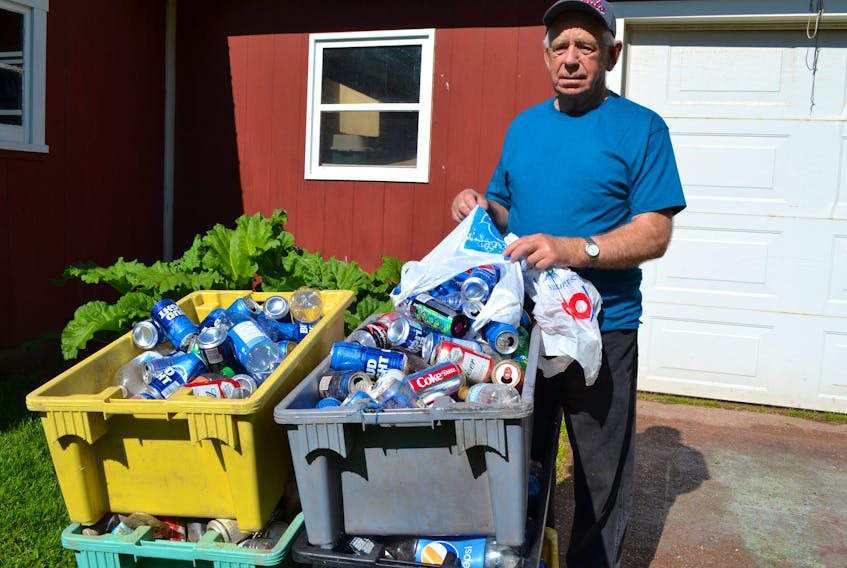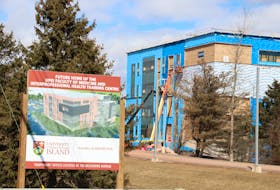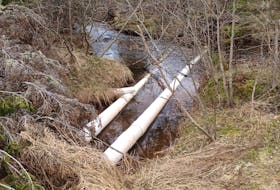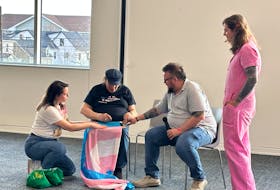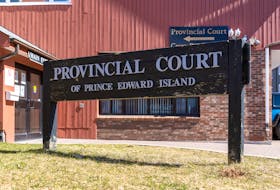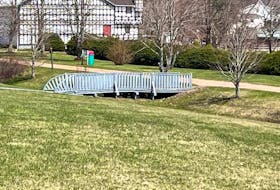ALBERTON
Retired lobster fisherman Bobby Henderson says he was never one for sitting still.
It was during one of his many exercise walks last summer that he decided to bring along a bag and collect the cans and bottles he’d been seeing in the ditches.
This year he has turned those exercise walks into a cause, turning the proceeds of his collections over to a Northport couple who raise funds for a school in Zambia.
Peter and Corina Bolo started gathering bottles and cans from friends two years ago to augment their support for a two-room Fruitful Vine school they helped build in Kamanga, Zambia.
Other people’s throwaways really add up, Henderson discovered.
Peter Bolo has estimated the sale of 29 tubs of recyclables Henderson gathered in April and May would feed breakfast to about 10 children for a full school year.
That knowledge has inspired Henderson to branch out. Whereas his walks used to be primarily in the Alberton and Kildare areas, he has been spotted in ditches out as far as Bloomfield Corner, onion bag in hand. He’s learned the mesh material is more durable than the traditional grocery bags.
It was Henderson’s son, David, who let him know about the Bolos’ recycling blitz.
“I do a lot of walking; I don’t like sitting around the house doing nothing,” said Henderson, pointing out the 160 kilometers of walking for a cause in just two months are giving him exercise, cleaning up the environment and supporting children in need.
The Bolos first visited Kamanga on a Habitat for Humanity build in 2005. By the time they returned home they had committed to raising the money to build a school. The two-room school, for 200 of Kamanga’s most vulnerable children, was completed when they took a detour to Zambia in 2016 while en route to a build in Ethiopia. They enquired how they could continue supporting the school and the teachers immediately raised the idea of a food program.
Peter Bolo said the school provides classroom space for Kindergarten to Grade 1 children from 7 a.m to 10 a.m. and for Grades 2 and 3 children from 10 a.m. to 1 p.m. They start the day off with a bowl of nshima, essentially a bowl of cornmeal porridge with nuts and soy added for extra protein.
It could be the only meal of the day for some of the children, but Bolo said teachers have said it would certainly be their most nutritious.
He’s learned that attendance at the school, as well as overall performance and general health have improved since the breakfast program started.
A cash donation provided for the utensils and about three months of food to get the program started and, since then, recyclables have pretty well kept all the children fed.
“It started off with a dozen friends and it’s morphed into over 100 people,” Bolo said of the support the endeavor has generated. Some people even drop off recyclables at the depots in Tignish and Bloomfield and direct that the proceeds go to the breakfast program in Africa.
“It costs 10 cents to feed a child a bowl of porridge a day. So, one beer bottle, two plastic water bottles or two cans equals a lunch for a child a day,” he summarized the impact.

